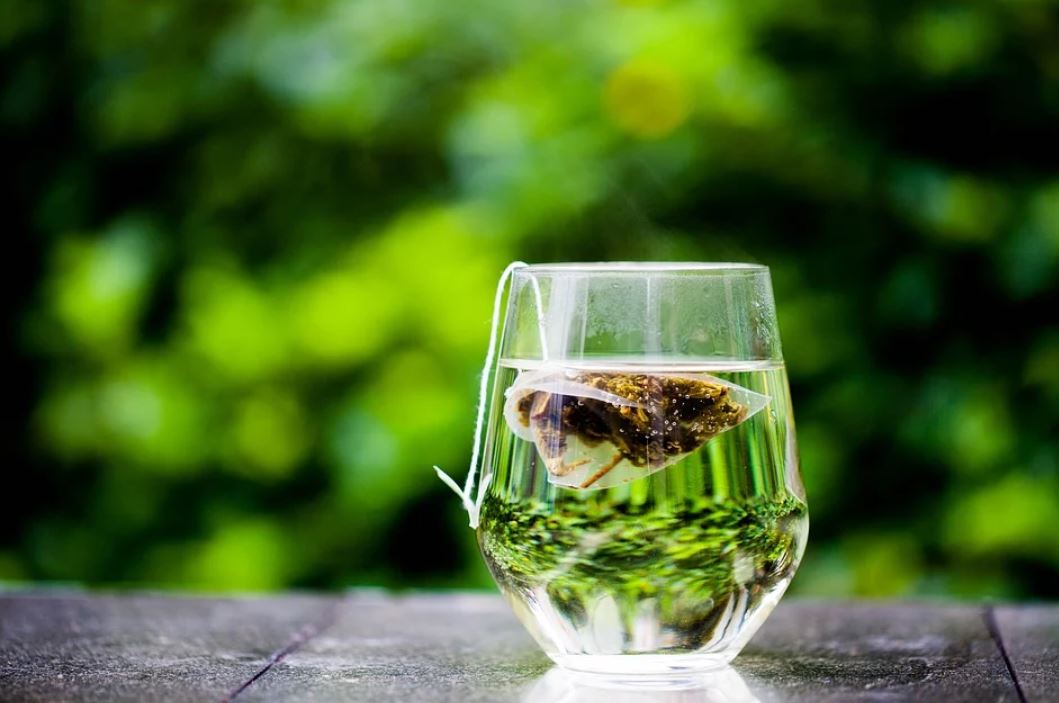Eight hours of sleep a day keep health issues at bay — you know it, and so does everyone else. The problem is that whenever you try to stick to this rule, sleep refuses to come. So what should you do? You’ve heard that drinking green tea before bed could help. But is that true, or is it just another myth?
Unfortunately, the answer isn’t so clear-cut. Green tea is widely regarded as the best tea for sleep, but some of its properties may have a completely opposite effect. So let’s take a closer look at both how green tea can help your sleep and how it can hinder it.
Compounds in Green Tea
Derived from the Camellia sinensis plant, green tea is full of beneficial substances and compounds. Some of these can boost your mood, memory, and reaction time, while others bring relaxation and improve brain function. Still others may help you lose weight or even protect you from cancer. It’s no wonder that everyone swears by it so passionately!
So, what are these magical substances that can improve every aspect of your health? Well, they are divided into three major categories. Those include:
- Catechins — antioxidants with powerful medicinal properties, such as epigallocatechin gallate (EGCG)
- Amino acids — most notably, theanine, which reduces stress, helps with anxiety and promotes relaxation
- Caffeine — a stimulant that improves your mood, memory, and reaction time
Even from this list, you can probably conclude how green tea could help your sleep, but also how it could interfere with it. But in case you’re still not sure, let’s take a closer look.
How Green Tea Helps You Fall Asleep
Think of the last time you felt stressed — were you able to fall asleep? Eventually, you probably did, but not without great difficulty. That’s because your body needs to be calm and relaxed before sleep; any excitement will just stimulate and awaken it.
And when you look at the list of compounds in green tea, one will surely catch your eye — theanine. This stress-reducing substance is exactly what you need for a good night’s sleep. Namely, it lowers the levels of stress-related hormones in your body and also helps your brain relax. In no time at all, your body will be in a perfect state for a nap!
How Green Tea Before Bed Could Interfere With Your Sleep
If theanine does such an excellent job at promoting sleep, how could green tea have any downsides? Well, aside from theanine, caffeine is a major compound found in green and other types of tea. And as you know well, caffeine is the main active ingredient in coffee — the beverage you drink when you want to wake up.
So, while green tea does relax you and reduce stress, it also stimulates you and improves your alertness. Of course, the amount of caffeine in green tea is much lower than in coffee, so the effects are milder. Still, if you’re particularly sensitive to this substance, green tea will likely not help you with sleeping troubles.
Also, caffeinated beverages act as diuretics, promoting the production of urine. So if you drink green tea less than two hours before bed, you might find yourself waking up to visit the toilet. It may not seem like a big deal to get up for a few minutes, but it does interrupt your sleep, resulting in drowsiness the next day.
In Conclusion
Considering that green tea has both positive and negative effects on sleep, here’s what we propose. You should drink it to relax and get in the right mindset for rest. However, don’t take green tea before bed — it’s better to do so at least two hours earlier. That way, you’ll still reap all the benefits, but you won’t have to deal with any of its drawbacks.

